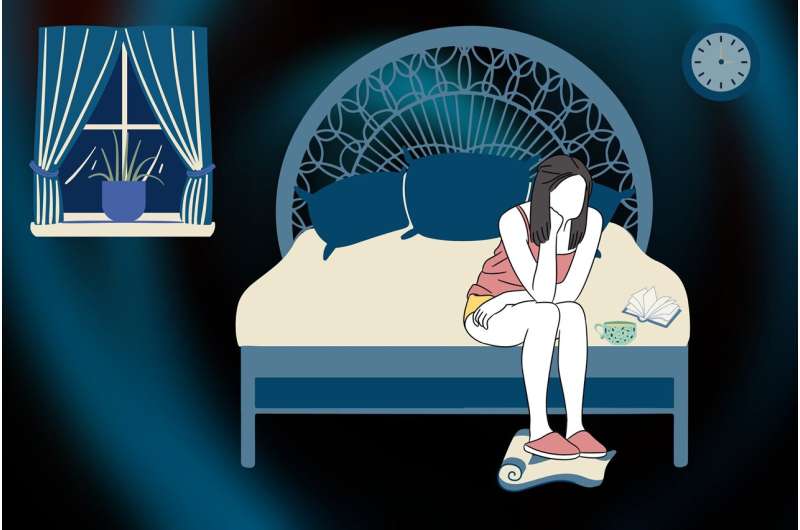The Effects of Sleep Disruption and Mood Medications on Women's Hormonal and Mental Health

Disruptions in sleep patterns and the use of mood-stabilizing medications can significantly impact women's hormonal balance and mental health. Recent research highlights the importance of understanding biological rhythms to develop better treatment strategies.
Recent research from Taipei Medical University sheds light on how disruptions in the body's internal biological clock—caused by modern lifestyle factors and certain mood-stabilizing medications—can adversely affect women's hormonal balance and mental health. This study emphasizes the importance of developing treatments that consider our body's natural rhythms to better support both mental well-being and hormonal regulation.
Many women face irregularities in their menstrual cycles due to factors such as shift work, irregular sleep patterns, jet lag, and the use of mood stabilizers. These disruptions can not only impair reproductive health but may also exacerbate mood disorders like depression and bipolar disorder. The study highlights the complex interplay between biological timing systems, including circadian (daily) and ovarian (monthly) rhythms, and how disturbances in one can impact the other.
The research outlines several key findings:
- Disrupted circadian rhythms, often caused by artificial light exposure at night and irregular schedules, interfere with menstrual cycles.
- Mood stabilizers like lithium can lengthen circadian rhythms and disturb hormonal cycles, potentially leading to menstrual irregularities.
- The brain's master clock, located in the hypothalamus, interacts with reproductive systems, linking daily biological rhythms with monthly reproductive cycles.
- Seasonal variations, such as shorter daylight periods, have effects on reproductive cycle length, indicating sensitivity of these systems to environmental cues.
This study underscores that our internal clocks influence more than just sleep—they also play a crucial role in hormonal and mood regulation. Understanding these interactions can pave the way for personalized, rhythm-aware treatments that support women’s emotional and reproductive health simultaneously.
The researchers advocate for future models that integrate multiple biological timescales to improve management of mood and reproductive disorders in women. By recognizing the deep connections between mental health and hormonal cycles, medical science can move toward more holistic and effective treatment approaches, ultimately enabling women to maintain better overall health.
This integrated approach offers promising pathways for addressing the intertwined nature of mood and hormonal health, emphasizing the need for clinicians to consider the timing and rhythm of biological processes when designing therapies.
Source: https://medicalxpress.com/news/2025-09-disrupted-mood-drugs-impact-women.html
Stay Updated with Mia's Feed
Get the latest health & wellness insights delivered straight to your inbox.
Related Articles
Innovative Bacterial Virus-Based Therapy Offers Hope for Genetic Diseases
A novel bacterial virus-based gene delivery system shows promise in revolutionizing treatment for inherited genetic diseases, offering cost-effective and personalized solutions.
Innovative Surgical Technique Shows Promise for Treating Groin Hernias in Women
A new surgical method evaluated in Uganda offers a promising, accessible treatment for groin hernias in women, including high-risk femoral hernias, with potential applications worldwide.
Can Ozempic Help Lower Your Risk of Dementia?
Emerging research suggests that Ozempic's active ingredient, semaglutide, may help lower the risk of vascular dementia in people with type 2 diabetes through its anti-inflammatory and metabolic benefits.
Innovative Synthetic Molecule Reduces Visceral Fat and Boosts Sleep Quality
A groundbreaking study reveals that the synthetic peptide Pep19 effectively reduces visceral fat and improves sleep quality in obese adults, with no adverse effects, offering new hope for metabolic health treatments.



